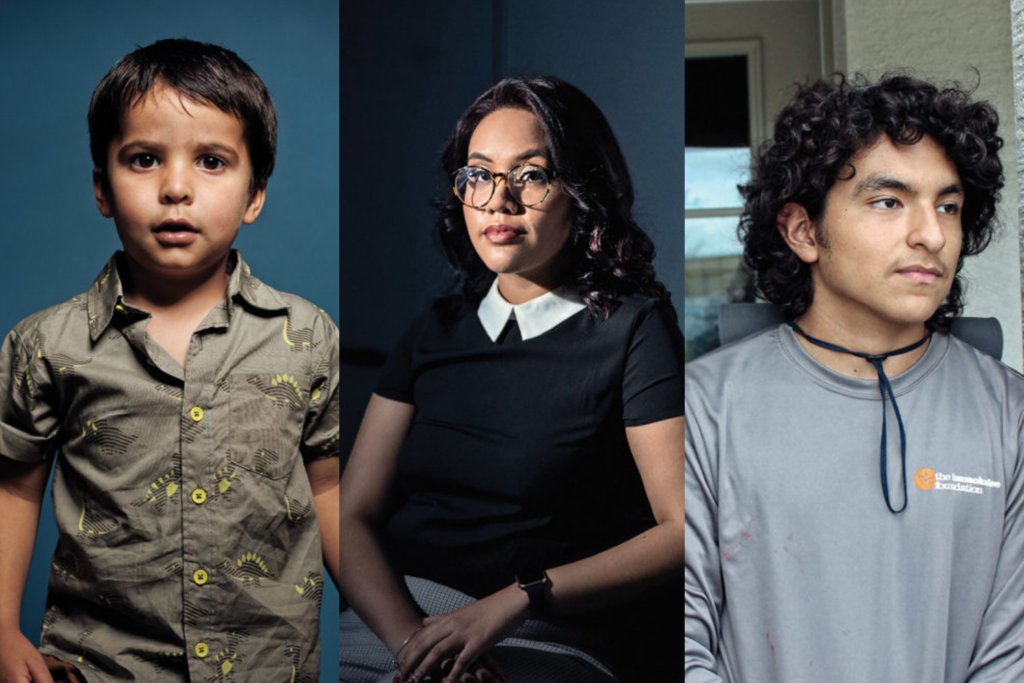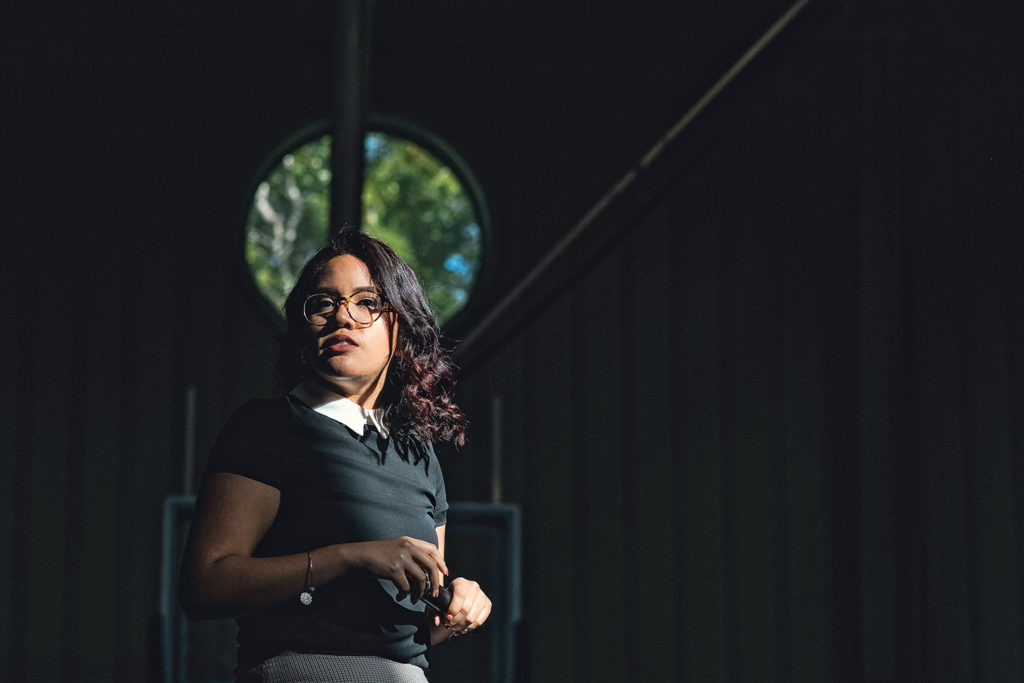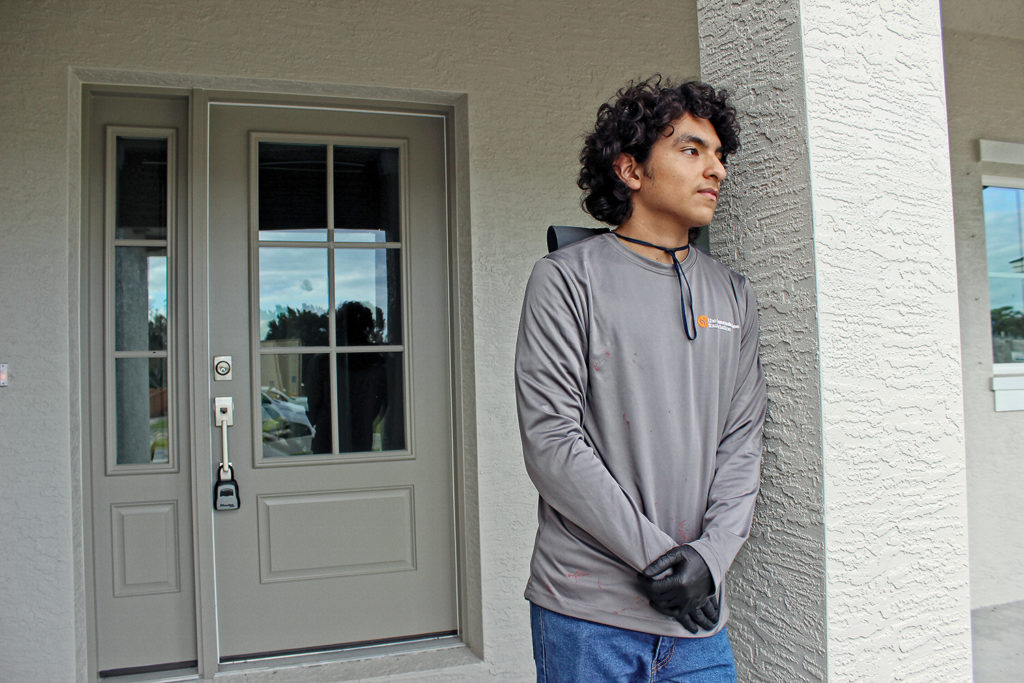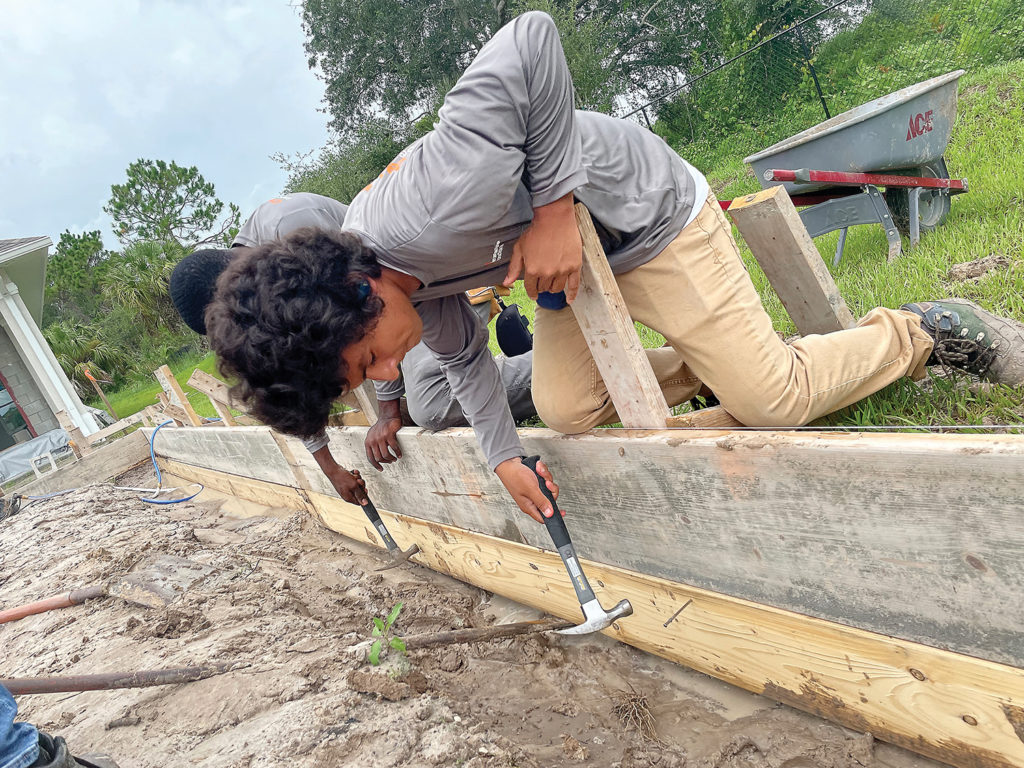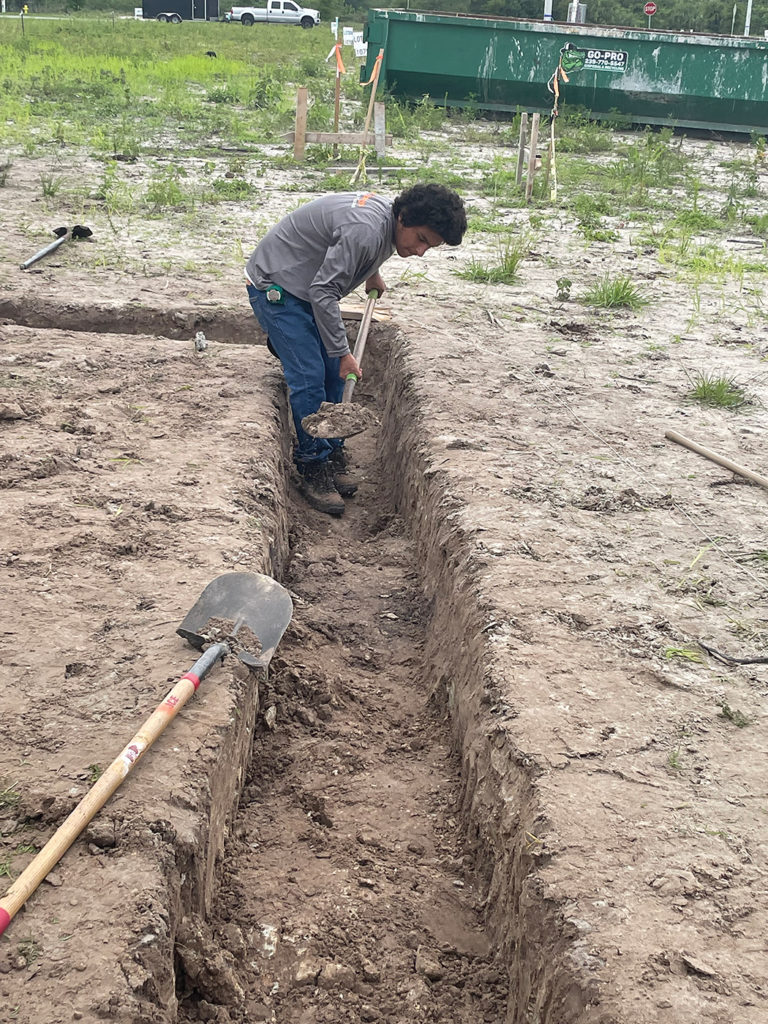
Early Learning
With the help of the ABLE Academy, 4-year-old Matthew Alvarez finds his voice.
By Brendan Meyer / Photography by Brian Tietz
Claudia Hernandez tried to celebrate her son Matthew’s 3rd birthday in 2019. She went to the store and bought a nice cake, but he wanted nothing to do with it. She turned on the TV to play the “Happy Birthday” song via one of his favorite cartoons because she knew Matthew didn’t like it when other people sang, but he just covered his ears and cried.
None of this was new. Hernandez had observed these and other behaviors for a while now. Matthew had trouble communicating when he was hungry, tired or needed to use the bathroom. He avoided the other kids at the playground, and his teachers told Hernandez that Matthew covered his ears during ‘circle time’ when things got too loud or overstimulating.
At first, Hernandez figured her son was a little behind the other kids his age, as evidenced by the fact he only started walking at age 2. But the older he got, the more she grew concerned. Hernandez worked as a teacher at Child’s Path, an NCEF-funded early learning center in Naples. That’s where she met Jennifer Schaaff.
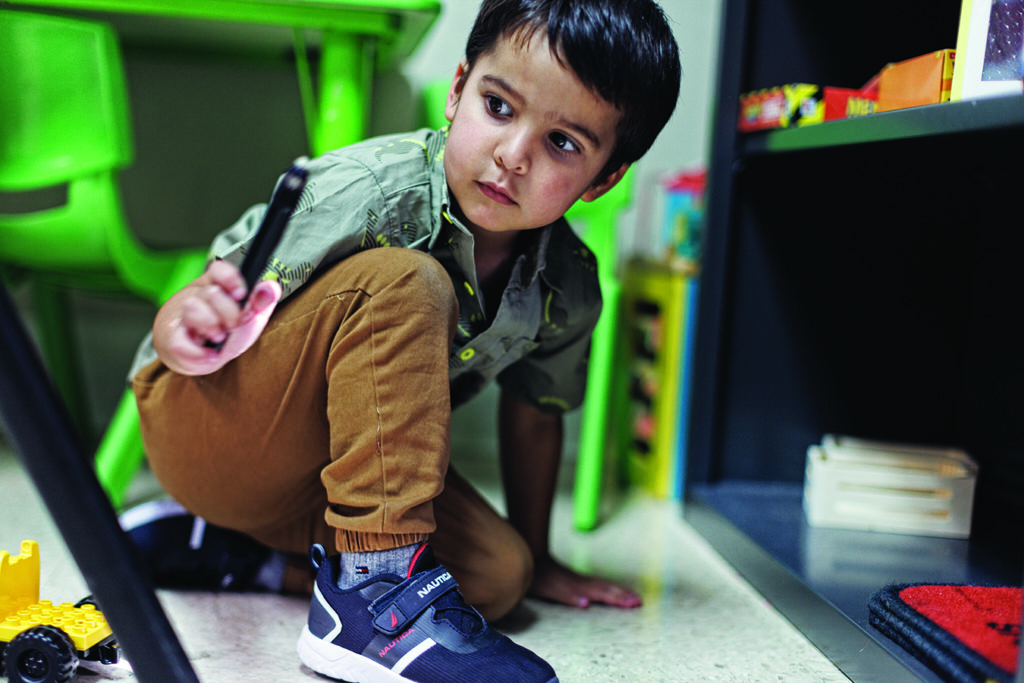
Schaaff is a board-certified behavioral analyst who works at the ABLE Academy, which provides a wide range of individualized applied behavior analysis (ABA) programming for individuals with developmental delays. She also travels to early childhood centers and preschools, like Child’s Path, to provide services in the classroom for students who may have language delays or other behavioral concerns and offer training to parents and teachers. She does this through the STAR Initiative program funded by NCEF.
One day, Hernandez saw Schaaff and asked for a favor. Could she take a look at Matthew? The first thing Schaaff noticed had nothing to do with Matthew’s behavior. “It was his smile,” Schaaff says. “He’s just the sweetest boy. When you meet him, you fall in love with him. And his smile just lights up a room.”
In time, she observed some early signs Matthew could be on the autism spectrum. He had trouble making eye contact and wasn’t echoing sounds, along with other behaviors his mother noticed, like sensitivity to noises. Schaaff provided Hernandez, who didn’t know much about autism, with communication techniques to practice at home. For example, instead of asking if Matthew is hungry, give him choices and encourage him to pick verbally.
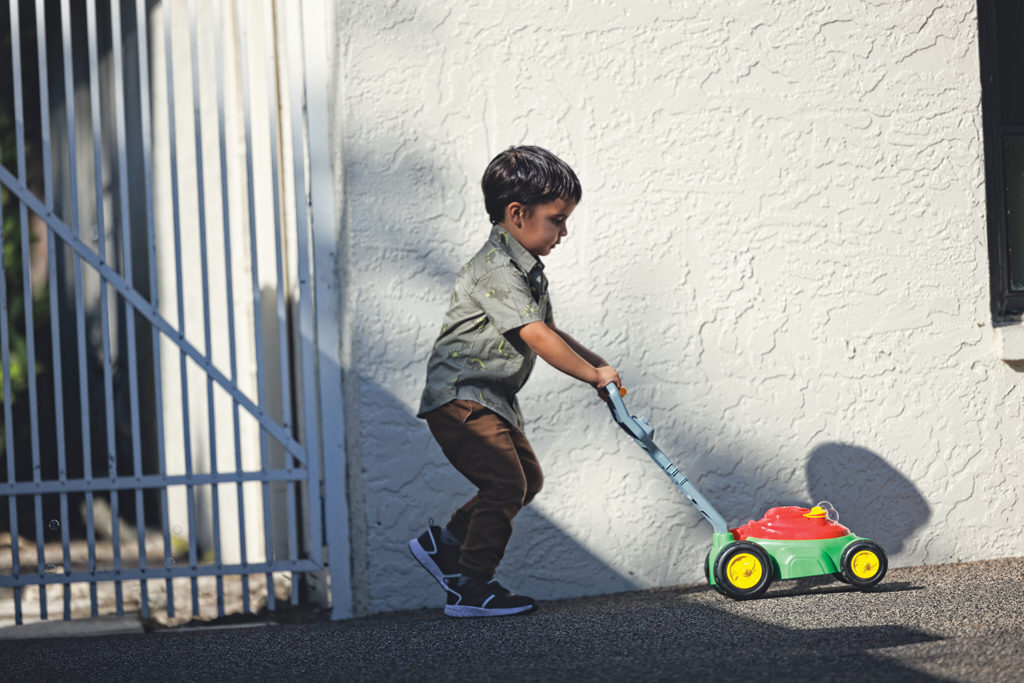
Schaaff also contacted the Healthcare Network of Southwest Florida to connect Hernandez to a pediatrician who could help get the process started for an autism diagnosis, which would open the door to many services. Matthew got the diagnosis after a long process with delays, a pandemic and meeting with the pediatrician. “Jen helped us every step of the way,” Hernandez says.
At first, Hernandez enrolled her son in the ABLE Academy for its ABA program. Now, he goes full-time to its early-intervention clinical classroom. Unlike preschools with 16 children in a room with lots of noises and sensory overload, the ABLE Academy maintains a small teacher-to-student ratio. “We have a highly trained staff that works specifically on ABA strategies, verbal behavior and language, starting with the motivation of the child,” Schaaff says. “It’s really intense, early intervention. We also mix one-on-one with small group teaching, so we give the child the opportunity to demonstrate those skills with peers, as well as in a one-on-one setting.”

Matthew started the program in late July. A couple of months later, when Hernandez went to pick up her son, one of his teachers told her he was already singing, conversing and making friends.
Hernandez laughed. “I told her, ‘You have to record it, because I don’t believe you,’” the mom says. “The next day, she showed me a video.” The first video was of Matthew requesting food—something he rarely did at home. Another was of him sitting in a circle with his classmates singing along to “A Ram Sam Sam,” an interactive song that had him raising his arms, patting his lap and clasping his hands like he’s sleeping. One video showed Matthew running on the playground, asking one of his classmates for a high five.
“Matthew has mastered so many skills so quickly,” Schaaff says. “In my personal experience, he’s a child that’s surpassed my expectations. This was the perfect program for him. He’s taken off.” Hernandez’s favorite video of Matthew shows him wearing a birthday hat, singing “Happy Birthday” to a classmate while eating a cupcake, his trademark smile covered in blue icing. “I just couldn’t believe it,” she says. “Matthew turns 4 next week, and I’m definitely buying him cupcakes.”
Out-of-School Time
The Boys & Girls Club of Collier County offered refuge and a path to success for Ivonne Muñoz and her sister while her mother worked two jobs to provide for her four kids.
By Zahra Khan / Photography by Anna Nguyen
Naples native Ivonne Muñoz was 9 years old when her parents separated. This coincided with the 2008 recession when the family lost their home and investment property. Soon after, they also lost their restaurant—a place where Muñoz and her 7-year-old sister would spend time doing homework after school. With their livelihood gone and their dad mostly out of the picture, their mother worked two jobs to provide. “She was working from 6 p.m. to 6 a.m. and then she had to make it to another job by 12,” Muñoz recalls. Her two older brothers were also busy with work and school. The girls needed somewhere to go when their day ended, but their family’s didn’t.
Their mom turned to the Boys & Girls Club of Collier County (BGCCC), where 3 p.m. isn’t the end of the school day, nor is 8 a.m. the beginning. Throughout the country, Boys & Girls Club chapters provide afterschool care to millions of children. In Collier, BGCCC is bolstered by NCEF’s out-of-school time initiative. “Some programming is before school; that’s why it’s called ‘out-of-school time;’ it’s all-encompassing,” president and CEO of BGCCC Megan McCarthy Beauvais says.
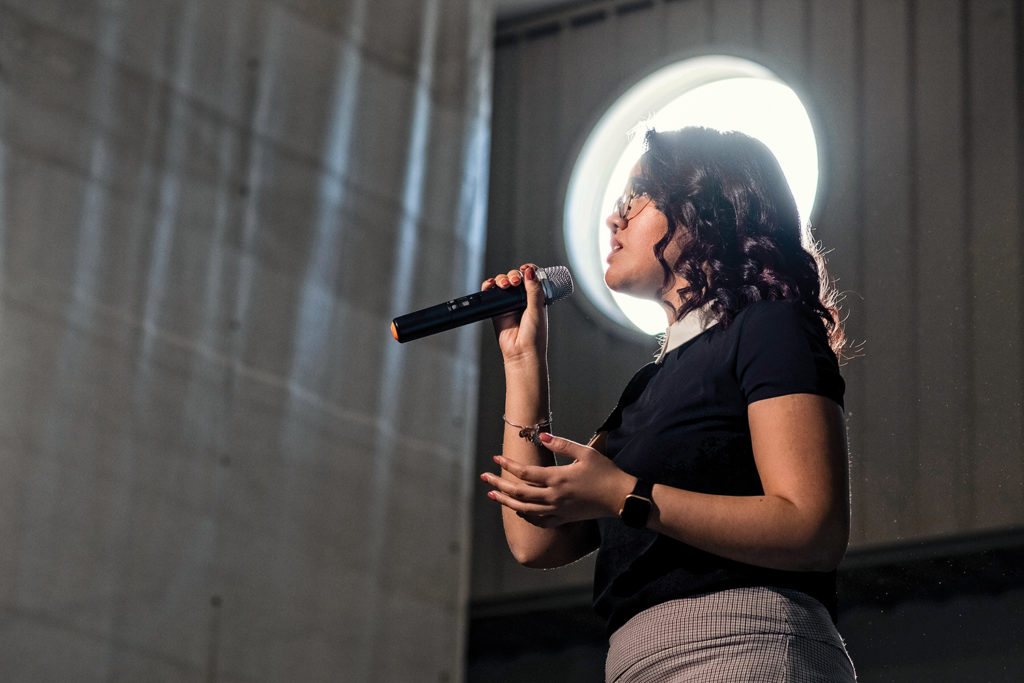
Of the four organizations that facilitate the initiative, BGCCC is the only one that takes students in K-12, which is key for families with different-aged kids, like the Muñozes. There, on-site mental health, oral health, vision and general healthcare services, along with hot meals and homework help, are offered through partnerships with groups like David Lawrence Centers and Harry Chapin Food Bank. The aim: to holistically cater to each child’s needs. “We’re not successful without the people who believe in our kids,” McCarthy says. “NCEF is at the top of that list. It’s much more than funding; it’s being a partner in our mission.”
NCEF maintains an active role in maximizing the services the groups provide. For instance, if a BGCCC kid has trouble reading, they may be paired with The Immokalee Foundation’s Immokalee Readers program for tutoring.
Beyond caring for kids’ basic needs, BGCCC—which annually serves about 4,000 children between its Immokalee and Naples campuses—focuses on fostering potential. Kids can partner with mentors and join programs across various categories: arts (dance, painting, storytelling); character development (etiquette, self-worth, community service); sports (baseball camps, running groups); and health and life skills (nutrition, money management).
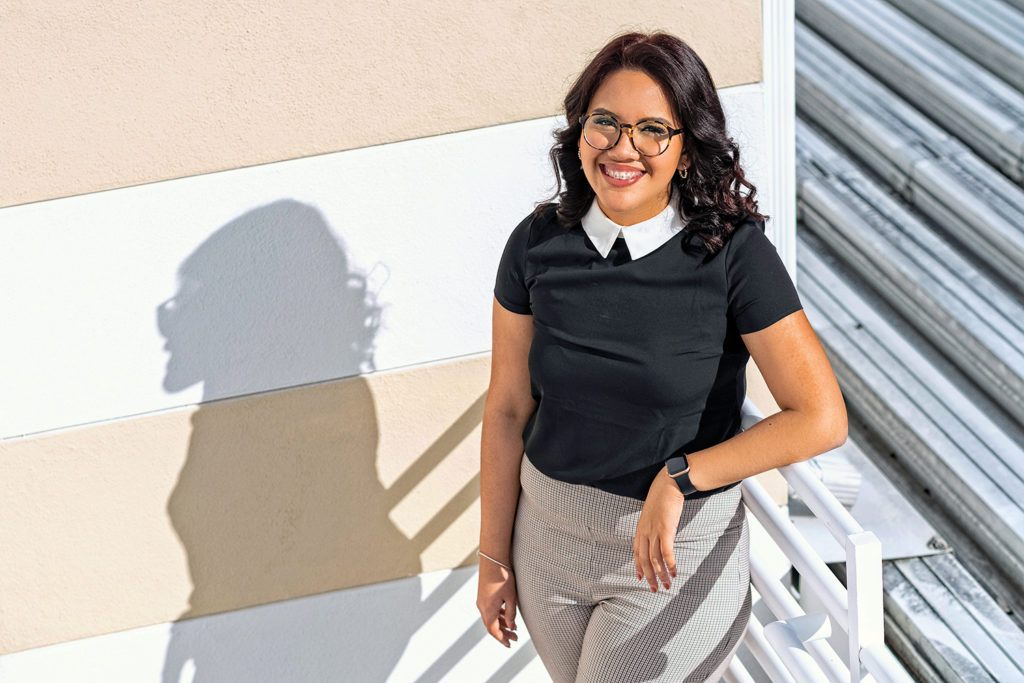
For Muñoz, her time outside of school was spent falling in love with singing through the choir program at the 113,000-square-foot East Naples campus. “Being at Boys & Girls Club kind of kept my mind off what was going on at home and seeing my mom’s stress,” she says. “Emotionally, I felt a lot better.”
She took jobs to help at home in high school, eventually working at BGCCC as a receptionist. During her freshman year, the club introduced her to NAACP’s talent program, The Afro-Academic, Cultural, Technological and Scientific Olympics (ACT-SO), where she belted her way to nationals for four consecutive years. Today, she is still involved with the organization as the youngest ACT-SO executive committee member and chairperson for the local competitions, for which she recruits, organizes and facilitates local events.
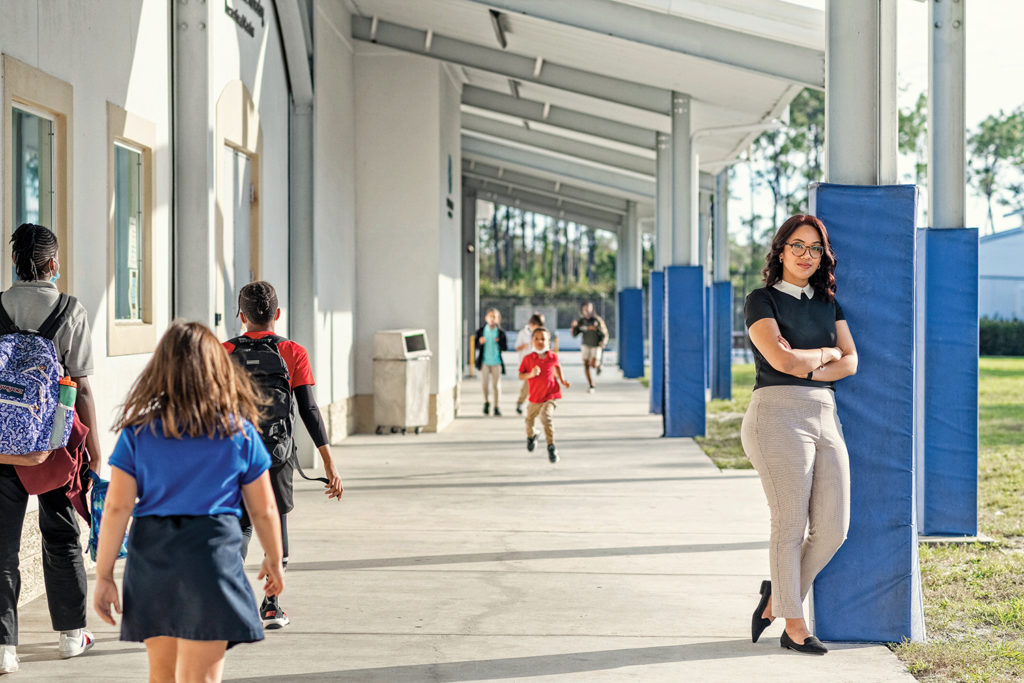
The club-led experiences helped bolster her confidence to where by the end of her time at BGCCC at 18, she’d been nominated four times for Youth of the Year, which recognizes high school students as role models for their success in the program. Now 21 years old and pursuing a double major in political science and international relations at Florida International University. Muñoz is now also half of the jazz duo Flow Ocean, which performs bi-monthly at Riptide Brewing Company. “We can only provide the opportunity; we can’t force kids to do anything,” McCarthy says. “It’s kids like Ivonne who make us so proud and make us feel like we’re helping to put some good out in the community.”
The CEO recalls the day Muñoz sang “When You Believe” by Whitney Houston and Mariah Carey in front of 250 people at the 2019 Youth of the Year Celebration—a leap from the trepid girl, who when she performed at her first BGCCC talent show at age 10, blanked on the words to Bruno Mars’ “It Will Rain” and ended her performance in tears. It wasn’t until older kids comforted and encouraged her that Muñoz tried again. Now, she does the same for others. Even while balancing a full-time school load and her job at a Naples law firm, she often goes back to the place that was there for her and her family. Her performance at last year’s celebration stands out in McCarthy’s mind as a symbol for local kids and what is possible. “I get goosebumps just thinking about it.”
Career & College Prep
Through The Immokalee Foundation, 17-year-old Jesus Mancilla combines academic rigor, self-motivation and a hands-on internship to prepare for life after high school.
By Jennifer Reed / Courtesy Images
Carlos Moreno, an assistant supervisor for BCB Homes, spreads a layer of gooey, crimson-colored waterproof sealant along the window opening of an under-construction home. Eight high school students scrutinize his moves. Leave no speck of concrete uncovered, Moreno instructs, or else water might penetrate.
BCB teamed up with The Immokalee Foundation, a leading youth services provider in Immokalee, to build an 18-home subdivision that serves as a hands-on internship for students in the Career Pathways Learning Lab, one of the foundation’s newest offerings, which NCEF funds. The Lab houses the internship portion of the Engineering & Construction Management Pathway, one of four fields high school students may pursue.
Among the eight observing Moreno is Jesus Mancilla. An earnest young man and a student, he has internalized his father’s teachings about personal responsibility and tackles this opportunity with the same diligence he puts into his studies. Jesus likes hands-on learning; he studies engineering at Immokalee High School and enjoys tinkering with electronics. Moreno sets them to work. Jesus and his fellow interns mimic the instructor as best as they can. “It looks easy,” Jesus says, his eyes never leaving the task. “But it’s not.”
Jesus joined The Immokalee Foundation at the recommendation of an older sister who had done the same and is now pursuing a master’s degree in business. She’s the first of six children in the family to go to college. Jesus, the youngest, wants to be the second, eyeballing the University of Miami and the University of Florida. “I saw it as a great opportunity,” he says of the Foundation, which he joined in eighth grade. “They offer you a lot of help.”
He describes his parents as influential, though with limited English, they could not offer much direct academic assistance. He took advantage of the Foundation’s programs, such as SAT and ACT prep (he nailed an 1130 and a 24, respectively, on his first try—above the national average). “I’ve sifted through a lot of career options,” says Jesus, who looks to marry his interests in animals, life sciences and engineering. “I can incorporate this [internship experience] if I become something like an architect for a zoo.”
There’s no doubt Jesus has grown since enrolling with the Foundation. His mother, Guillermina, says her son seems more focused than before; Jesus, who translates for her, agrees. Thalia Vazquez, Jesus’ former student advocate at the Foundation, says, adding that he’s come out of his shell and applies himself more. Jesus describes his younger self as the kind of kid who did not speak until spoken to. During his freshman year, he decided to find his voice. Students in the Construction & Engineering Pathway begin working toward industry-recognized certificates in 9th and 10th grades. Jesus took the lead in organizing meetings for a group project and developed public speaking skills for its presentation. He also ramped up his academic achievement. This year, he’s taking honors chemistry, an accelerated marine science class, sociology, precalculus, engineering, and two college courses offered at Immokalee High.
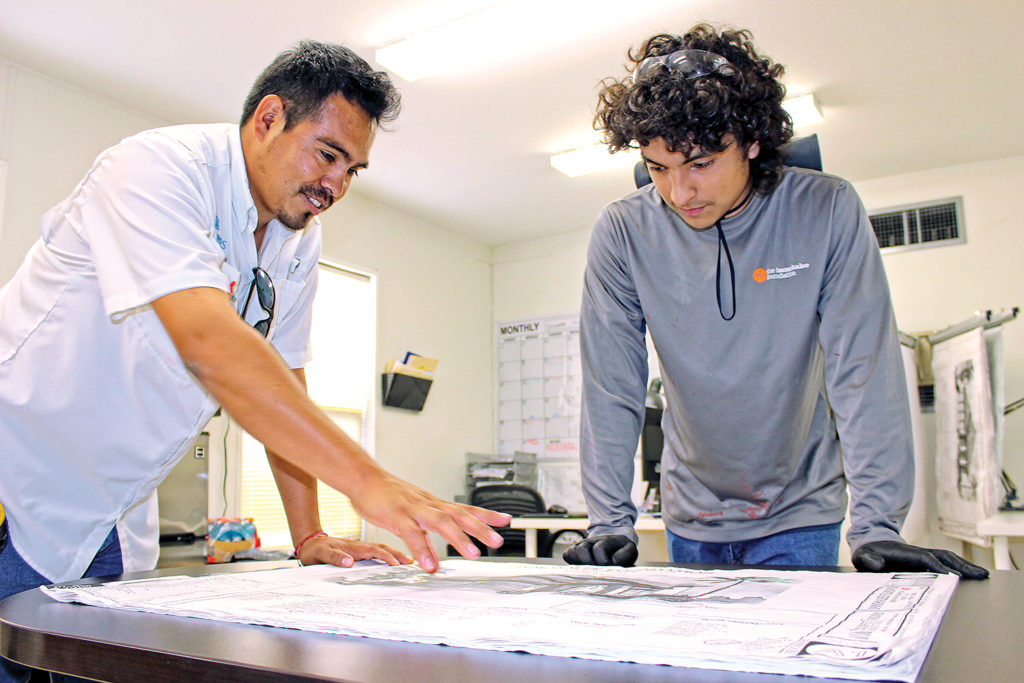
What motivates him? “That’s a tough question,” he says. “It’s got to be feeling that I need to do better.” His parents encouraged him to go beyond the fields and packinghouses, but Jesus isn’t trying to one-up his family—though he does hope to provide for them financially. He wants to do better than what the world expects of a kid from Immokalee.
Regardless of what drives him, Jesus holds a 4.5 weighted grade-point average and is working toward a college scholarship. “I’m grateful,” he says. “I’m grateful for this program.”

